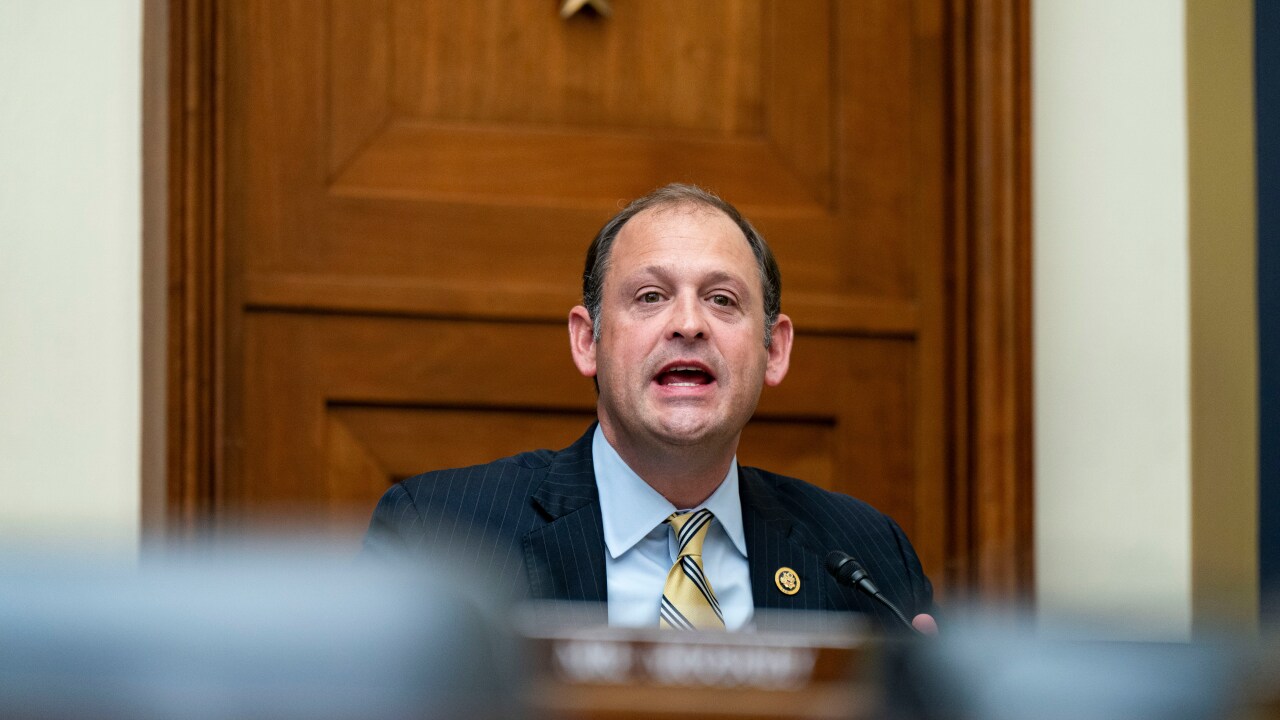CHICAGO -- Bondholders are learning a hard lesson in Detroit.
General obligation bondholders are among the biggest losers under the city's Chapter 9 debt plan, filed Friday with the bankruptcy court.
Most GO holders would see 80% haircut, with little differentiation between limited tax GOs, and voter-approved unlimited-tax GOs. That's among the highest cuts in the plan, well below cuts proposed for the city's pensioners, who are also considered unsecured creditors by the city.
The severe treatment is prompting some muni market participants to say it's time to abandon long-held beliefs about the safety of property-tax backed GOs.
"I think we might be starting a period where we're getting more differentiation among types of GOs," said Patrick Early, chief municipal analyst at Wells Fargo Advisors.
A fresh view of GO debt now needs to take into account whether a state has a clear statutory lien for its GOs, and whether or not it allows local governments to file Chapter 9, when those liens might come into play, experts said.
Michigan lacks a statutory lien and does allow for Chapter 9, a double whammy that may clobber Detroit bondholders.
Bond insurers that wrap Detroit's ULTGO debt have sued the city over its default, arguing that the bonds should be considered secured due to a voter-approved property tax millage levied specifically for ULTGO debt service, that effectively functions as a lien.
"It's one of those if it walks like a duck, talks like a duck, then it's probably a duck," Early said.
But the question is uncertain until U.S. Bankruptcy Judge Steven Rhodes rules on the matter, or the city reaches a settlement with the bond insurers.
Until then, Municipal Market Advisors said it is advising investors to demand extra yield if buying GOs from states that allow Chapter 9 and do not have clear statutory liens.
"This reflects a value proposition, not increased default risk, and means that lenders in those states can and should continue to buy tax-backed bonds but with enhanced price insulation via moderately higher yields and more defensive structures," MMA said Monday in its weekly outlook.
An 80% haircut would be an "extreme deviation" from traditional recovery expectation, MMA added.
The market was not overly surprised by Detroit's plan -- emergency manager Kevyn Orr had been warning of it for months -- but will likely begin to price in that kind of nontraditional behavior, Early said.
"I think you'll start to see some spreads developing between the clear and obvious statutory liens [and creditors without]," he said.
"Going forward, any of the other property-tax secured deals without liens, I think they probably ought to trade a little cheaper to account for the risk."
Individual credit analysis will continue to be key, experts said.
"Detroit questions, pretty substantially, the value of the GO pledge," said Michael Comes, vice president of research at Cumberland Advisors, which holds no Detroit debt.
"Post-2008, we've always had to look at each individual credit," Comes added. "But it's really all about the capacity to increase taxes. The statutory lien is really only relevant in distressed situations, so whether or not there's a lien isn't as important as whether the muni is willing to raise taxes."
Like Comes, Early said the statutory lien could only become important in extreme situations.
"If the state does allow for bankruptcy, and doesn't provide that extra lien, but if you're working with a double-A, good quality, economically diverse issuer, does the risk ever rise to the point where you're feeling concerned?" Early said.
If Detroit's plan is confirmed, ratings agencies should reexamine their own GO ratings methodologies, according to MMA.
"[A] viable replacement regime would be far more state-specific," MMA said; states with weaker protections should have their tax-backed debt ratings "converge at a lower level than the current ULTGO ratings," the firm said.
"In states without governmental bankruptcy or providing a statutory lien on ad valorem taxes for the benefit of GO bondholders, some semblance of the current system could still be maintained," MMA wrote.
Standard & Poor's said it's not ready to make any major ratings changes on its GO methodologies, but that it's watching the situation closely and that much hinges on the final court decisions.
"We're spending some time researching all the states, not to come to a quick conclusion but if there are any precedents set from this, we can have a reaction to it," analyst Jane Hudson Ridley said, adding that the ratings agency is reviewing which states have statutory liens and which do not and "talking it over internally," Ridley said.
States that either do not allow cities to file for Chapter 9 or have clear statutory liens include California, Colorado, Florida, Louisiana, and Rhode Island.
In a new comment Monday, Fitch Ratings called Detroit's plan "hostile" to bondholders and said it would set a troubling precedent in the municipal market.
Fitch analyst Arlene Bohner, in an earlier interview, told The Bond Buyer that the city's preferential treatment of pensioners over GO holders is "troubling" and "could potentially cause us to review our policies and change how we view GO bonds in Michigan."
"If this priority of creditors is upheld, Fitch expects that this disregard for the rights of bondholders will factor into higher borrowing costs for local issuers, and ultimately for local property taxpayers, in Michigan," Bohner wrote Monday.
Moody's Investors Service Monday put out a report highlighting the details of the city's debt plan, but did not include discussion of any impact on its own ratings method.
While the national impact remains uncertain, most muni market participants agree that Michigan will be hit the hardest by the city's debt treatment.
"Kevyn Orr has himself in a tough spot," Early said. "He has to make a strong case to get the outcomes he wants, but he's sort of holding a gun to the head of the rest of the state by showing risks in certain deals that the market hadn't necessarily considered."





